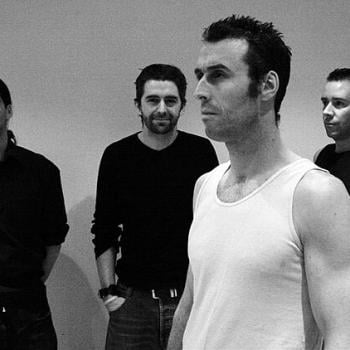Kabbalistically, the concept of clothing is two-fold. Firstly, clothes cover up what is truly there. It is a covering up of the naked truth because were the naked truth to be exposed it would result in a revelation of essence that is so great that it is inappropriate for the present situation.
Additionally, with clothes we wear give off a certain impression. Clothes are our expression of identity and statement to the outside world. In the deeper Jewish sources, the concept of clothing is always bound up with the concept of honor, glory, and dignity, because through our clothing we project something about ourselves and about how we want to be manifest before others.
For this reason, Kabbalistic sources refer to our bodies and our thoughts, speech and actions as the clothing of the soul. While the body conceals one's true Divine essence, it is specifically through the vehicles supported and provided by the body—thought, speech, and action—that our inner essence is projected outward and becomes manifest and actualized.
(It is not imperative that there be an audience as one brings out his inner self; even one's own thoughts are an expression of self. Similarly, if one were to rob a bank without anyone else in this world ever finding out, that action was still expressing a lack in this individual's complete actualization of his Divine essence. So, in addition to the facets of speech and action, thought, which is concealed within one's own mind, is an enclothing of the soul as well.)
God's Clothes
Taking this one level deeper, if, as mentioned in previous articles, we are all aspects of God by which God is manifest in this world arena that conceals him, then we and the world are, in a sense, the clothing of God. Again, for the purpose of God becoming manifest even in an arena in which there is ample opportunity for non-God-clarity, God creates our world in which God-clarity is fuzzy and there exists a real inclination to do evil, i.e., non-Godliness. Once God's true essence—that He is all there is—is concealed by the world's existence, God puts the human soul into the world to serve as a vehicle by which God's true colors shine through even in this world of God-concealment. That is to say, the world and the human soul serve the functions of enclothing God, to conceal God's true essence yet project God's attributes outward.
The Spiritual Danger of Clothes
This is a powerful and important role we are playing, but there is an inherent danger in the concept of clothing. Clothing can give the impression of being an independent entity, something "other than" an outer expression and manifestation of the wearer. It may seem as if there is the individual and his clothes, as if they are not one and the same.
Clothes function to conceal and project, and that can lead to the danger of falsehood, of becoming a phony. For example, imagine you are a single going out on a date. You put on your best outfit, wear makeup if you're a girl, take extra care about what you say and what you don't say—in essence you put on an act! And what was the purpose of this performance? In order that your date will like you and want to get to know you better? So, for the purpose of getting the significant other to know who you are, you hide who you truly are on the date.
The Mask of Nature
This is one of the ideas underlying the masks Jews wear on the Purim holiday. Purim is the holiday on which we celebrate God saving us from our enemies—not with miracles, but with seemingly random political events. On Purim, God was masked within nature. Nature is another example of the concept of God's clothing, a vehicle by which God conceals Himself yet projects Himself. But don't confuse the clothes for an independent entity. Do not mistake the cover up for the Real Thing. As mentioned, the danger of clothing is the possibility that we may come to view the clothing—in this case, nature—as an "other," as something other than God's clothes. (The Hebrew word meaning the natural world, hateva, has the same numerical value as Elohim, the name for God connoting perception of God from within the world's multiplicity.)
Similarly, each of us are walking around with masks on, not always projecting the truth of who we are, whether it is because we are afraid to show others who we really are or because it seems easier to stay in a state of sleep than actualize our true Godly essence and potential.
This 'Wearer-Clothes' paradigm applies to the Torah as well. Just as you don't see the soul of a person (i.e., his essence) when you view him superficially—only the soul's clothes (i.e., his body)—so too, we don't see the essence of the Torah (i.e., its spiritual intent) when we view it superficially—only the Torah's clothes (i.e., its physical words). For this reason, Kabbalah is referred to as "The True Wisdom" since Kabbalah is the wisdom that reveals the essence, soul, and spiritual intent of the Torah.





